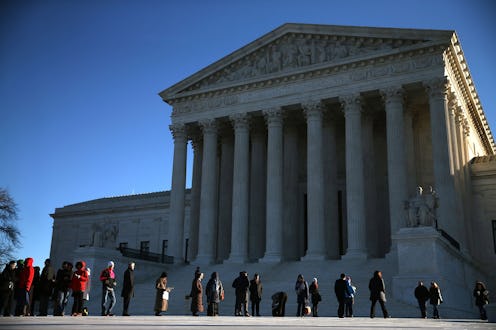News
This SCOTUS Ruling Could Change Everything
The Supreme Court has declared that their 2012 Miller v. Alabama ruling eliminating mandatory life sentences without parole for juvenile offenders will now be retroactively enforced by allowing those with life sentences the opportunity to argue in favor of their release. This Supreme Court ruling could change everything for those sentenced to life imprisonment when they were juveniles.
It may certainly change the fate of Henry Montgomery, who brought his case against the state of Louisiana to SCOTUS. Montgomery was sentenced to life without parole in 1963 after being convicted of fatally shooting Sheriff's Deputy Charles Hurt when he was just 17 years old. After over five decades in prison, Montgomery believes that his participation in rehabilitative programs are enough to at least allow him a parole hearing. He was denied his wish and thus the case continued through to the Louisiana Supreme Court, which also denied Montgomery collateral relief. His appeal led him to the Supreme Court, which sided in favor of Montgomery and all who have received mandatory life sentences at a young age.
Justice Anthony Kennedy issued the majority 6-3 ruling in the case of Montgomery v. Louisiana. Kennedy repeatedly cited the aforementioned 2012 case and stated that "the opportunity for release will be afforded to those who demonstrate the truth of Miller's central intuition — that children who commit even heinous crimes are capable of change."
To be clear, life without parole sentences have not been completely eliminated for juvenile offenders. Kennedy wrote that such a sentence is typically justified in very rare cases. Kennedy continued:
The Court recognized that a sentencer might encounter the rare juvenile offender who exhibits such irretrievable depravity that rehabilitation is impossible and life without parole is justified. ... The fact that life without parole could be a proportionate sentence for the latter kind of juvenile offender does not mean that all other children imprisoned under a disproportionate sentence have not suffered the deprivation of a substantive right.
Louisiana is one of just a handful of states that hadn't previously retroactively enforced Miller v. Alabama — SCOTUS' ruling forces their hand to do so. This decision came with disapproval from three judges, including Antonin Scalia, who issued yet another passionate dissent. Scalia called the ruling "nothing short of astonishing" and even evoked The Godfather while issuing his dissenting opinion. Though Scalia might be less than thrilled, inmates and families seeking a better future for their loved ones will be overjoyed at the opportunity for juvenile offenders to potentially leave prison as success stories.
